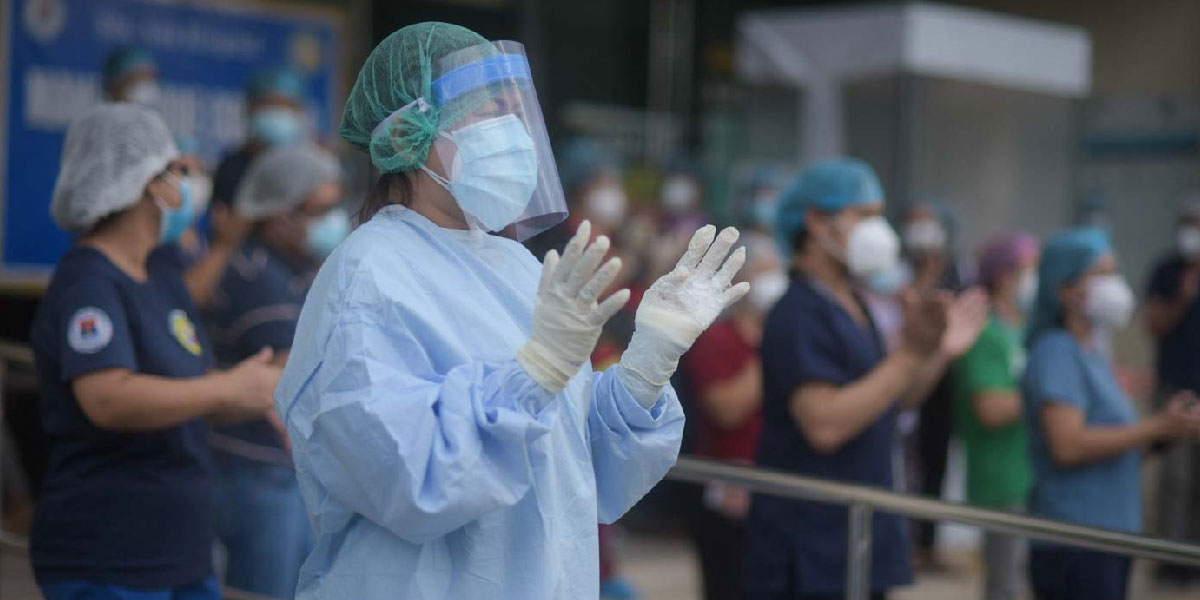
Senator Joel Villanueva on Thursday rejected suggestions that the Philippines send health workers to the United Kingdom or Germany in exchange for vaccines, saying the move should not be the answer to some officials’ impatience over the arrival of vaccine supplies.
“The biggest question is why [we got] to this point?” said Villanueva in an interview with PTV-4.
He said he has the highest level of respect for two officials who were reported as sources of the proposal – Labor Secretary Silvestre Bello III and Foreign Affairs Secretary Leandro Locsin Jr. – “but I beg to disagree.”
“I feel their sentiments and they’re getting impatient,” Villanueva said partly in Filipino.
Villanueva, chair of the Senate committee on labor, said there’s no reason to trade Filipino health workers for vaccines especially now that Senate Bill No. 2057, or the proposed Covid-19 Vaccination Program Act of 2021, has already been adopted by the House and would be sent soon to President Duterte for his signature.
The proposal was attributed to the Department of Labor and Employment (DOLE) which had clarified that it was not a scheme to barter health workers for vaccines.
Villanueva said the controversy highlights the need to address challenges that overseas Filipino workers face.
This could be done through the proposed Department of Filipinos Overseas which Villanueva said will soon pass the Senate.
Meanwhile, Filipino nurses are not commodities that can be treated like political bargaining chips, according to Congressman Ronnie Ong of the Ang Probinsyano (AP) Party-list.
Ong said that while he welcomes the decision of the Philippine government to ease up on its deployment ban for healthcare workers, this must be done on humanitarian grounds and not because the government needs to use them to get vaccine dole-outs from other governments.
“I don’t know what our labor officials are thinking but our nurses and our medical professionals are not commodities and should not be treated as such. Since the start of the pandemic they’ve been brave and tireless on the frontlines fighting this virus for us,” Ong lamented.
“We are are hoping that it is not just an exchange of our nurses for the vaccine. Hindi naman sila commodity na ganyan ganyan lang. Treating them like fish baits to get our vaccines is absolutely demeaning for our healthcare workers who are known all over the world for their dedication and professionalism. Nakakahiya naman tayo masyado,” Ong said.
Ong said that instead of demanding vaccines for nurses, the government should instead seek assurance from other governments that all the Filipino healthcare workers who would be deployed are given the best health protection and fair treatment in terms of pay and other benefits recognizing that a lot of our health workers and their families were economically displaced because of the pandemic.
Moreover, the partylist lawmaker noted that while there really is a need as well to prioritize the vaccination of outbound Overseas Filipino Workers as we open our deployment ban, including those who are not part of the healthcare sector, the job of providing our workers these vaccines is the sole responsibility of the Philippine government after all.
“With or without the vaccines coming from other governments, our OFWs should be vaccinated. It’s our government’s job to procure these vaccines through decent and legal means, not trade workers for vaccines. Stop this unacceptable disservice to our OFWs, especially our health workers who have sacrificed so much for our country since the pandemic began.”
OFWs play a very crucial role in our bid to perk up the economy as remittances represent a huge portion on the country’s Gross Domestic Product (GDP). From Php 33.5 Billion OFW remittances in 2019, this dropped to around Php 27.346 Billion in 2020 when the government started implementing various levels of quarantine protocols including full community lockdowns.






















